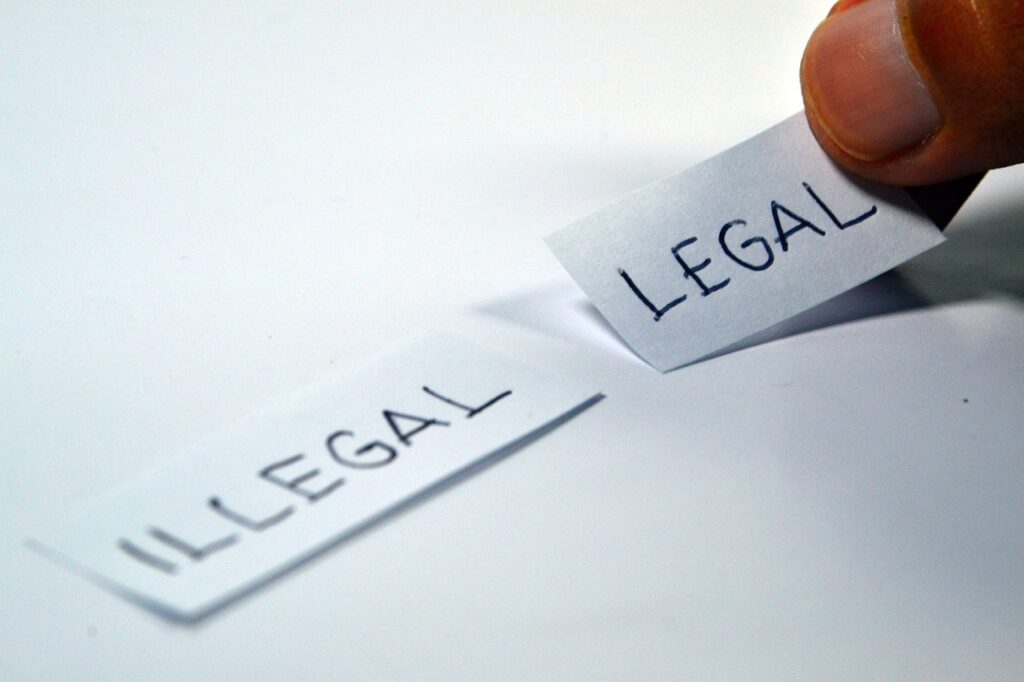Cryptocurrency has revolutionized digital transactions by offering decentralization, Legal Gray Area security, and financial freedom. However, within the crypto ecosystem, privacy coins such as Monero (XMR), Zcash (ZEC), and Dash (DASH) have emerged as a controversial subset. These coins prioritize anonymity and untraceable transactions, which has led to both praise for financial privacy and concerns over illicit use. This legal gray area has sparked debates among regulators, governments, and crypto enthusiasts worldwide.
What Are Legal Gray Area?
Privacy coins are a class of cryptocurrencies designed to obscure transaction details, including the sender’s and receiver’s addresses, as well as the amount transacted. Unlike Bitcoin and Ethereum, which operate on transparent blockchains, privacy coins utilize advanced cryptographic techniques such as:
- Ring Signatures & Stealth Addresses (Monero) – Mix multiple users’ transactions, making it nearly impossible to trace the original sender.
- zk-SNARKs (Zcash) – Allows transactions to be verified without revealing any details about the sender, receiver, or amount.
- CoinJoin (Dash & Bitcoin Mixers) – Bundles multiple transactions into one to hide the original source and destination.
These privacy-enhancing features make these coins attractive to users who value anonymity, but they also raise red flags among regulators due to their potential use in illicit activities.
Why Are Privacy Coins in a Legal Gray Area?
1. Regulatory Uncertainty
Regulatory agencies worldwide struggle to categorize privacy coins. While some countries have imposed outright bans, others remain uncertain about how to approach them. The challenge lies in balancing privacy rights with the need for financial transparency and anti-money laundering (AML) compliance.
2. Association with Illicit Activities
Privacy coins are often linked to illicit activities such as:
- Money laundering – Criminals use privacy coins to hide the origin of illicit funds.
- Dark web transactions – Many darknet marketplaces accept privacy coins as a primary payment method.
- Tax evasion – The anonymity feature makes it difficult for tax authorities to track undeclared earnings.
While Bitcoin and other transparent cryptocurrencies are used in illegal activities as well, the added layer of privacy makes regulation and enforcement more complex for privacy coins.
3. Delisting from Exchanges
Due to mounting regulatory pressure, major cryptocurrency exchanges have begun delisting privacy coins. For example:
- South Korea banned privacy coin trading on domestic exchanges in 2021.
- Japan’s Financial Services Agency (FSA) prohibited exchanges from listing Monero, Zcash, and Dash.
- US and European exchanges like Bittrex and ShapeShift have removed privacy coins to comply with evolving AML regulations.
These restrictions make it increasingly difficult for users to acquire and trade privacy coins legally.

Legal Approaches to Privacy Coins Around the World
1. Countries That Have Banned Privacy Coins
- Japan – Complete ban on privacy coins due to AML concerns.
- South Korea – Privacy coins delisted from all exchanges.
- Australia – Exchanges must adhere to strict AML regulations, discouraging privacy coin listings.
2. Countries That Regulate, But Do Not Ban
- United States – While privacy coins are legal, agencies like the IRS and FinCEN require compliance with AML and Know Your Customer (KYC) regulations.
- United Kingdom – Privacy coin usage is monitored, with regulations focused on preventing tax evasion and money laundering.
- European Union – Under the proposed Markets in Crypto-Assets (MiCA) framework, privacy coins face heightened scrutiny but are not outright banned.
3. Crypto-Friendly Jurisdictions
- Switzerland – Allows privacy coins but enforces AML measures on exchanges.
- Singapore – Embraces blockchain innovation but requires compliance with AML laws.
- Malta – Encourages crypto adoption while ensuring oversight of financial transactions.
Arguments in Favor of Privacy Coins
Despite regulatory concerns, privacy advocates highlight several legitimate reasons for using privacy coins:
1. Financial Privacy
Users have a right to financial privacy, similar to how cash transactions are untraceable. Privacy coins protect against surveillance, identity theft, and corporate data breaches.
2. Protection from Censorship
Privacy coins empower individuals in authoritarian regimes where financial censorship is common. Citizens in oppressive countries rely on privacy coins to transact freely without government interference.
3. Enhanced Security
Public blockchains expose users to risks such as targeted hacks and financial tracking. Privacy coins add an extra layer of security by ensuring sensitive financial data remains confidential.
The Future of Privacy Coins
The legal landscape for privacy coins remains uncertain, but several trends are emerging:
- Regulatory Clarity – Governments may develop frameworks allowing privacy coins to exist with stricter compliance measures.
- Hybrid Privacy Models – Coins like Zcash offer both transparent and private transactions, potentially providing a compromise for regulators.
- Decentralized Exchange (DEX) Growth – With centralized exchanges delisting privacy coins, decentralized platforms may become the go-to solution for trading.
- Advancements in Blockchain Analytics – New forensic tools may bridge the gap between privacy and compliance, allowing regulators to detect illicit transactions without banning privacy coins outright.

Conclusion
Privacy coins occupy a legal gray area, balancing the need for financial privacy with regulatory compliance. While some countries embrace them as a tool for digital freedom, others view them as a threat to financial transparency. As blockchain technology evolves, the conversation around privacy coins will continue, shaping their role in the broader cryptocurrency ecosystem.
